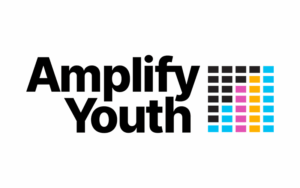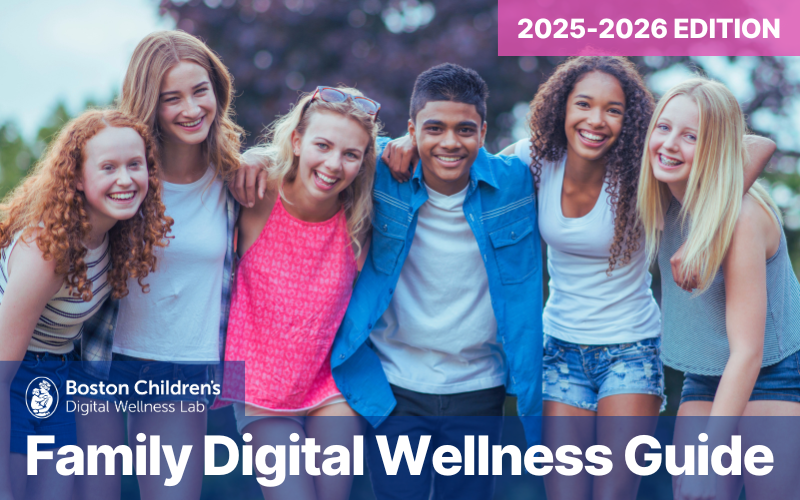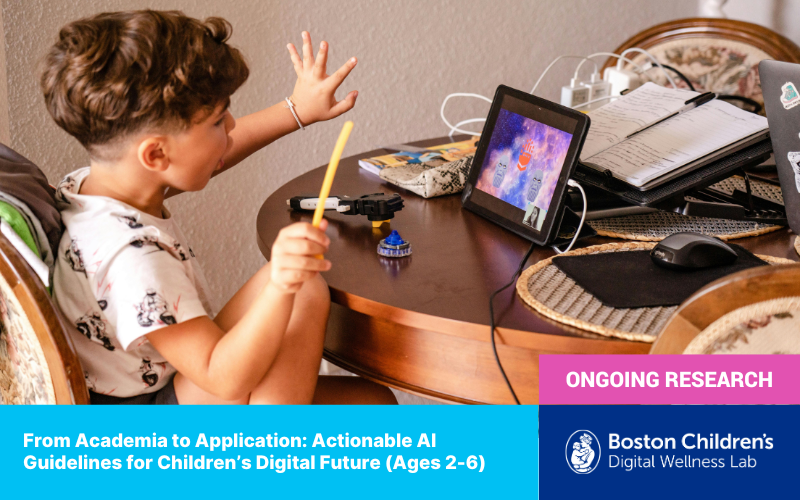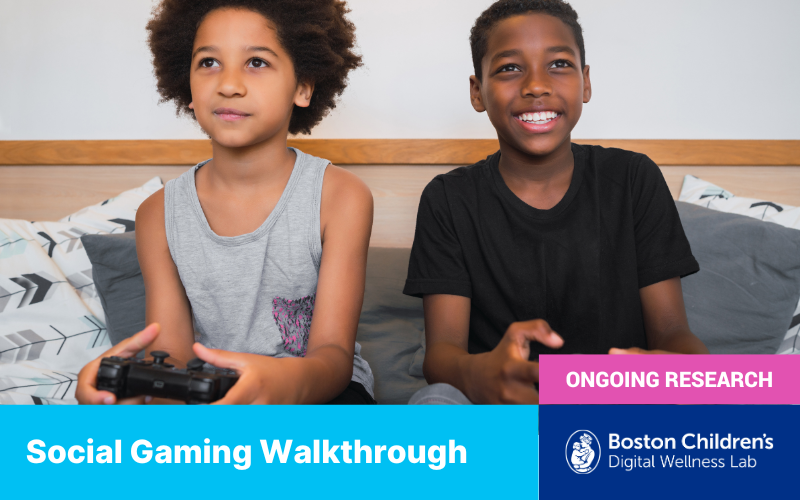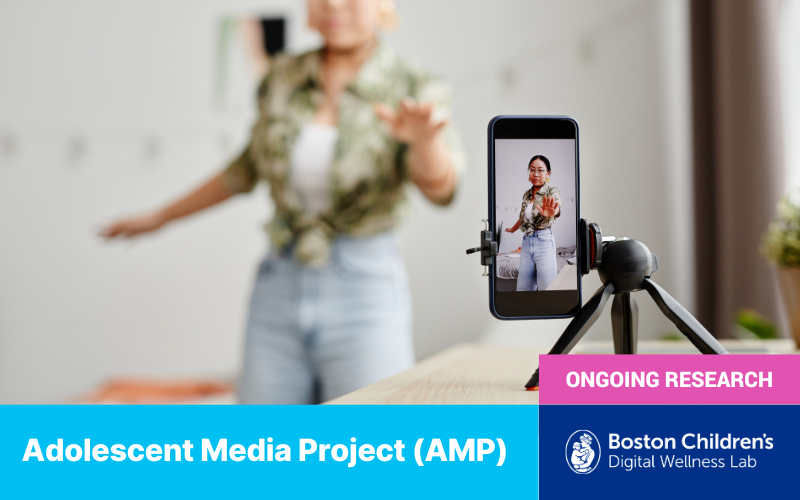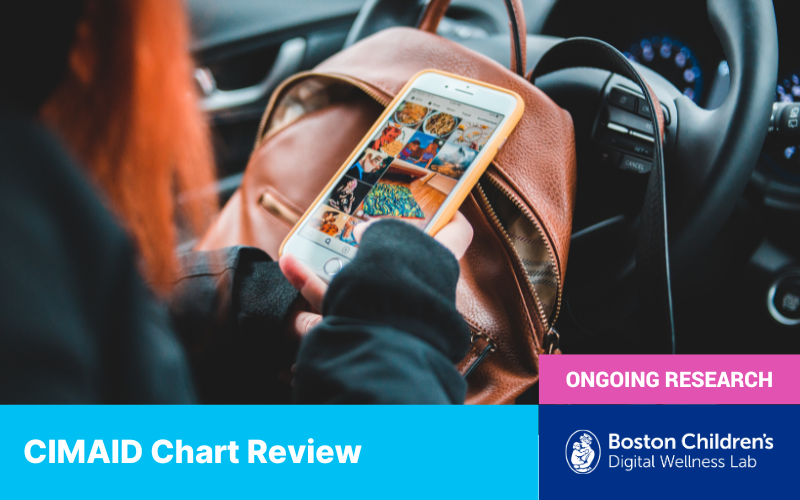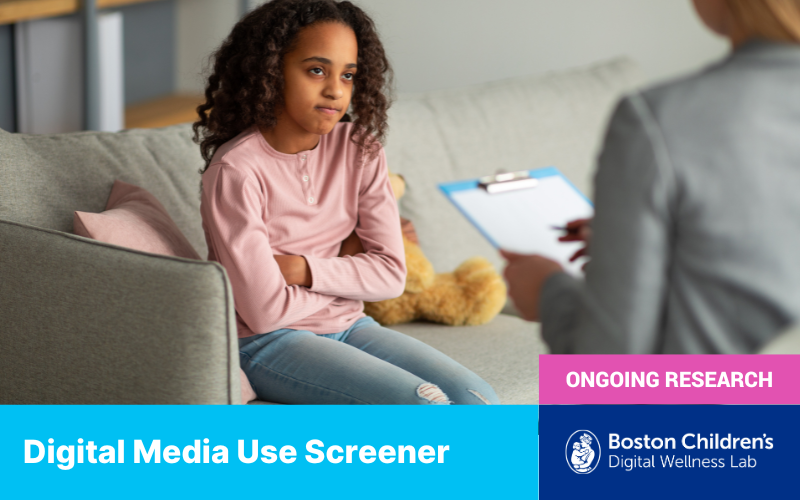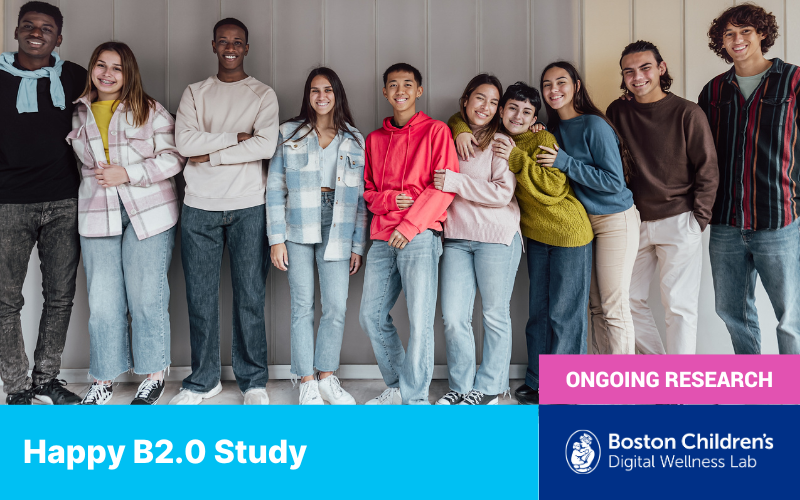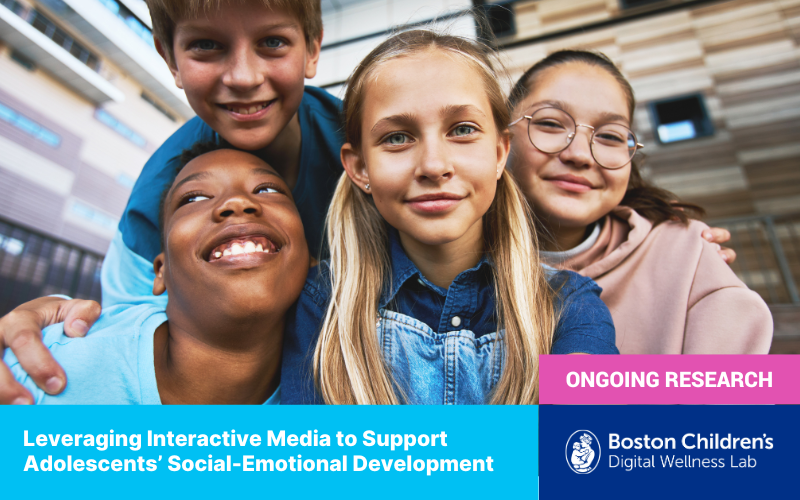Project Name
From Academia to Application: Actionable AI Guidelines for Children’s Digital Future (Ages 2-6)
Areas of Focus
Prosocial Development, AI
Duration
Nine months (2025)
Collaborators
Faculty Leads
Additional Colleagues
- Brinleigh Murphy-Retuter, EdM, Digital Wellness Lab
- Zoë Kronberg, BA, Digital Wellness Lab
- Alicia Owens, Digital Wellness Lab
- Alice Huang, BS, Digital Wellness Lab
Overview
AI systems profoundly influence children’s digital experiences and can affect their development. Many existing materials in early childhood development (ages 2-6) are dense and not easily translated into actionable design guidelines. This project bridges the gap between large-scale policy frameworks, academic insights, and real-world product development needs. By identifying, refining, and translating the most relevant recommendations into functionality-based, developmentally appropriate guidelines, we will produce an accessible tool for trust and safety teams, product developers, and designers.
Objectives
To identify and categorize concrete product development guidance, principles, and policy statements that can be applied to AI products for young children.
To pinpoint specific research findings (cognitive, emotional, social) that either reinforce or adjust existing guidelines to ensure appropriateness for young children.
To highlight areas in which publicly available gray literature may lack detail or contradict developmental science, calling for additional clarification or new guidelines.
To determine the most effective way to structure and present recommendations (by feature type, risk area, user flow, etc.) so they can be applied in real-world AI product development.
Ultimately, this project addresses both the urgency of AI’s growing presence in young children’s lives and the fragmentation of existing resources on child rights and developmental science.
Methodology
This translational study will incorporate literature review (gray plus academic), expert panel input, industry validation, and final design of an actionable tool (such as an infographic or decision tree).
Preliminary Findings
Please check back in mid-2025 for more updates.
Publications
Please check back in mid-2025 for more updates.
For more information about this study, please contact dwl@childrens.harvard.edu.






